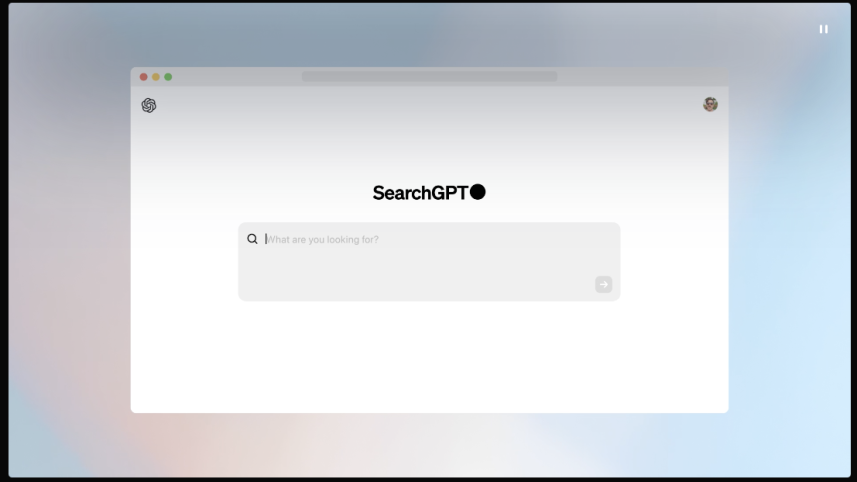OpenAI launches SearchGPT, its own search engine

OpenAI has announced its long-awaited entry into the search market with the launch of SearchGPT, an AI-powered search engine designed to revolutionise the way users access information on the internet. Unlike traditional search engines, SearchGPT not only retrieves data but also organises and summarises it for the user.
Upon visiting SearchGPT, users are greeted with a large textbox that prompts, "What are you looking for?" This sets the stage for an innovative search experience where results are presented not just as links, but as structured summaries. For example, a query about music festivals yields a concise overview of events, each with a short description and a link to the source.
In another demonstration, SearchGPT detailed the optimal times to plant tomatoes, categorising various plant varieties. Users can refine their search results with follow-up questions or explore additional links through a sidebar. Notably, the search engine includes a feature called "visual answers," though details on this function remain scarce, as OpenAI did not provide additional information before publication.
Limited access for now
Currently, SearchGPT is a prototype, available to only 10,000 test users. It is powered by the GPT-4 model family, as confirmed by OpenAI spokesperson Kayla Wood in a statement to The Verge. Wood also mentioned that OpenAI is collaborating with third-party partners and utilising direct content feeds to enhance its search results. The long-term goal is to integrate these search capabilities into ChatGPT.
A potential threat to Google
The release of SearchGPT represents a significant move in the search engine market, potentially challenging Google's dominance. Google has been integrating AI features into its search engine in response to emerging competition. Meanwhile, OpenAI's approach could also position it as a competitor to Perplexity, a startup known for its AI "answer" engine. Perplexity has faced criticism for its AI summaries, which some publishers claim plagiarise their content.
Publisher partnerships and content management
OpenAI appears to have learned from the backlash faced by competitors. In a blog post, the company emphasised its collaborative approach with news organisations, including The Wall Street Journal, The Associated Press, and Vox Media. Kayla Wood highlighted that these partners provided valuable feedback, which continues to shape the development of SearchGPT.
To address content usage concerns, publishers will have control over how their content appears in SearchGPT. They can opt out of having their content used to train OpenAI's models while still being included in search results. The company ensures that responses include clear, in-line attribution and links, allowing users to trace the source of the information easily.
Prototype advantages and future outlook
Launching SearchGPT as a prototype offers several benefits. It provides OpenAI with a buffer against potential inaccuracies in search results, a common issue during early stages of AI product deployment. Additionally, it mitigates the risk of incorrect attributions or inadvertent content copying, challenges previously faced by competitors like Perplexity.
The development of SearchGPT has been a topic of speculation for months, with The Information first reporting on it in February and Bloomberg providing further details in May. OpenAI's strategy includes recruiting talent from Google to bolster its search team. Observers have also noted the emergence of a new website hinting at OpenAI's move into the search market.
 For all latest news, follow The Daily Star's Google News channel.
For all latest news, follow The Daily Star's Google News channel.
Comments